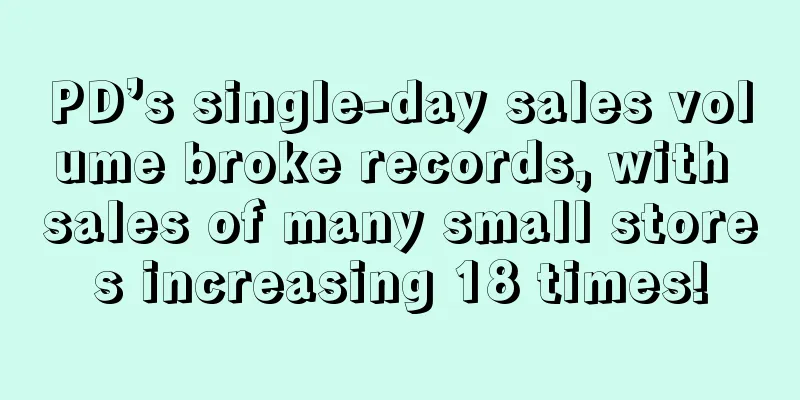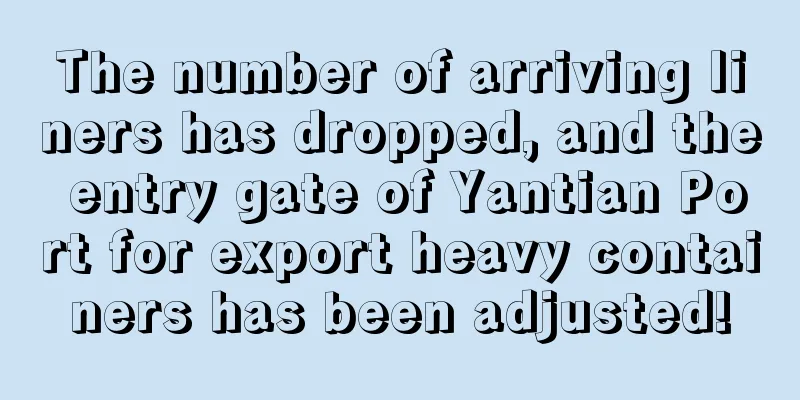Another market releases big news! Sellers suffer heavy losses?

|
As a large blue ocean market for cross-border e-commerce, Brazil has attracted many Chinese sellers to enter.
However, recently, many cross-border e-commerce platforms and sellers have encountered difficulties in Brazil, and some big sellers have even directly suspended local sales.
Recently, Brazilian Finance Minister Fernando Haddad suddenly announced that the government will soon introduce relevant policies to cancel the tax-free policy for purchases below US$50 on cross-border platforms, including foreign platforms such as AliExpress, SHEIN, Wish, Shopee, etc.
According to current Brazilian law, individuals do not need to pay taxes when purchasing foreign products when the value of the goods is less than US$50. This regulation also applies to the purchase of imported goods from cross-border e-commerce platforms.
If the $50 tax exemption is cancelled, the cost of products sold by cross-border sellers in the Brazilian market will increase significantly, and the prices of products will inevitably increase. Local consumers also strongly oppose this policy, because taxation means that consumers will bear additional costs in disguise.
Regarding the twists and turns of this policy adjustment and its subsequent impact on cross-border sellers and platforms, Anjun Logistics, which has deep experience in Brazil, has confirmed it from multiple parties and now makes a brief interpretation of the policy promotion process and predicts its impact in the future.
1. In May 2022, at the advocacy of the retail chain Havan, several Brazilian retail associations launched a round of offensives, hoping that the government would introduce bills or temporary measures to impose taxes on foreign e-commerce platforms, but in the end it came to nothing.
2. In August 2022, the Brazilian Retail Development Institute (IDV), which represents 75 major retailers in Brazil, said it was considering filing charges with the Brazilian antitrust regulator (Cade) in the coming weeks, accusing these e-commerce platforms of counterfeit sales and tax issues, disrupting the country's economic order.
3. On March 1, 2023, Brazilian retailers once again put pressure on the government and Congress in an attempt to improve their competitive environment with overseas e-commerce platforms, saying that these companies do not pay taxes in Brazil and do not comply with relevant product safety standards and anti-piracy regulations, causing harm to local companies.
4. On March 22, Brazilian Finance Minister Fernando received a proposal from FPE joint parliamentarians to cancel the tax-free policy for purchases below $50 on cross-border platforms, including Shein, Shopee, Wish and AliExpress. According to the chairman, Brazil receives about 500,000 parcels from China every day, which will cause the country to lose billions of tax revenue. However, Brazilian consumers strongly opposed it and asked him to veto the proposal.
5. In early April, Brazilian Finance Minister Fernando Haddad announced that the government will soon introduce relevant policies to cancel the tax-free policy for cross-border platform purchases below $50. After the new policy is promulgated, imported goods with a value of less than $50 will be subject to import tax, and goods that have not paid import tax will be seized by Brazilian customs. However, before that, goods that have not paid import tax will be returned to the place of shipment. This policy has caused strong dissatisfaction among cross-border platform sellers and Brazilian consumers.
6. On April 11, Robinson Barreirinhas, director of the Federal Internal Revenue Service, officially confirmed in an interview with reporters that the exemption from import duties will be terminated for international parcels worth no more than $50. This action is one of the fiscal measures of Finance Minister Fernando Haddad to increase revenue and reduce expenditure. The tax bureau will end this exemption so that all orders will be taxed normally and put an end to the goods classified by the government as "digital smuggling". At the same time, normal e-commerce international parcels sent from Brazil will not increase import duties, and will still be subject to a 60% import tariff."
The Deep-seated Reasons for Brazil's Cross-Border Policy Adjustment
Reason 1: When Lula participated in the presidential campaign, he promised more labor benefits and assistance to the middle- and low-income groups. After being elected, the government is expected to increase its funding by 100 billion reais per year to fulfill its promises and launch new policies . However, Brazil is a high-tax country, and basically all taxes that can be collected have been collected. The tax burden on enterprises and the public is already very heavy. There are not many scenarios that can be thought of to increase government revenue through taxation, so the government has set its sights on the two major areas of online gambling and e-commerce inbound packages. According to the Brazilian Federal Tax Bureau, by levying taxes on cross-border e-commerce inbound packages, the government can increase its fiscal revenue by 8 billion reais per year.
Reason 2: The local retail industry association was affected by the rapid development of e-commerce, and its order volume continued to decline. In order to preserve its own business, the local industry association took the lead in lobbying government officials and legislators to impose taxes on cross-border packages, and launched a public opinion and news offensive. This has aroused the attention of all sectors of society to cross-border packages.
Reason 3: In recent years, the number of cross-border parcels in Brazil has continued to grow, mixed with some irregularly declared parcels, including counterfeit and infringing products, low-price declarations, hidden declarations, etc. In order to combat this behavior, the Federal Tax Bureau announced in December 2022 a normative document to tighten supervision of incoming parcels, aiming to standardize the entry of cross-border parcels and improve customs clearance efficiency.
Details of expected policy changes
1. Adjustment time: Brazil has reached a consensus within the government to impose e-commerce purchase tax on cross-border e-commerce B2C inbound packages. It is expected that the Minister of Economy and the Minister of Finance and Taxation will jointly announce it after the visit of Brazilian President Lula to China. There will be a 3-6 month preparation period after the announcement, and the earliest implementation time is expected to be July 1;
2. Changes in tax rates: The government is planning to levy an e-commerce purchase tax, but the specific tax rate has not yet been determined. According to people who participated in the project discussion, there are currently two versions of the plan. The first version is: a 60% purchase tax will be levied on packages with a sales price of US$0-499; a 60% purchase tax + ICMS + BRL150 customs clearance fee will be levied on packages with a sales price of US$500-3,000. This version is based on the current regulations on the entry of B2C packages in the postal regulations, but only the tax-free regulations for packages under US$50 have been cancelled; the other version is that the newly established e-commerce purchase tax will be lower than the current 60% tax rate for packages above US$50, and is expected to be around 37%. However, since this is a new tax item, its formal implementation requires legislation and approval and passage by the parliament. If this is the case, it should take a relatively long time (more than 12 months) from preparation to implementation, so it is possible to use the president's power to establish a temporary emergency decree before the legislation is passed, so that it can be used in a transitional manner before the legislation is passed.
3. What changes will happen in 2023: On December 21, 2022, the Brazilian Federal Internal Revenue Service issued a document No. RFB 2124, which revised the previous package entry supervision policy and commodity declaration data regulations, strengthened the authenticity and standardization of package declarations, and imposed higher penalties for non-standard behaviors. This policy provides a 6-month preparation and transition period and will be implemented on July 1, 2023. However, this document does not involve the cancellation of the $50 tax exemption policy; of course, it does not rule out that this time the Brazilian Federal Internal Revenue Service, in the name of standardized law enforcement, will include B2C cross-border packages in the scope of non-pre-tax exemption. If so, the government can achieve the purpose of taxing packages below $50 without legislation.
4. Does the post office still have an advantage? Currently, only the last-mile service of the post office can enjoy the $50 tax exemption for cross-border parcels. If the policy is relaxed, will the post office still have a relative advantage? After visiting many relevant policy formulation participants, we obtained the following information: A. B2C parcels entering the country through the post office are exempt from product certification, but commercial parcels need product certification, but this is also controversial and no conclusion has been reached. B. The post office may return the parcel to the bonded area free of charge in the future, which solves the return problem, but commercial express returns will be charged separately, and according to current Brazilian regulations, parcels need to pay taxes when they are returned out of the country .
How to collect inbound e-commerce tax
Brazil's current cross-border parcel entry taxation policy is to levy taxes on consignees, but this will result in a large number of consignees refusing to pay taxes and difficulty in returning parcels. Brazil's current cross-border parcel return policy is not clear. Except for parcels under the UPU framework, which can be returned free of charge, other parcel returns can only be returned to Brazil. There is currently no legal basis for how to deal with returned parcels. Such a large backlog of returns is a huge pressure for postal or logistics operators. There is a lot of internal debate about who will pay taxes in the future. There are currently two discussion plans:
1. Green Channel: that is, declare and prepay taxes before delivery. There are two scenarios for this prepayment of taxes:
Scenario 1: Taxes are collected directly during the transaction process. This solution is currently considered the best solution by all parties, but it depends on the connection and system transformation of the Federal Tax Bureau, Customs, and Postal Service systems and system platforms. The Federal Tax Bureau stated that it cannot be completed in a short period of time and it will take longer to prepare. At the same time, this will also involve the upgrading and transformation of the entry systems of other government regulatory departments, such as the inspection and quarantine department, the health and epidemic prevention department, the electronic information department, and other government units;
Scenario 2: Prepay taxes before the package arrives in Brazil. That is, the platform or logistics company opens a tax payment account at a designated bank under the supervision of the customs and the IRS (batch tax payment), or pays taxes on a designated website (the IRS website or the post office website) (tax payment for a single order), and the goods are released after verification when they arrive in Brazil. However, this method still has the problem of difficult supervision, mainly how to evaluate and determine the real price of the goods, how to prevent the problem of under-declaration, etc.
The green channel is actually a quick way to clear customs, placing the responsibility for paying taxes on the shipper or e-commerce platform. However, this method is actually difficult to implement in practice because under Brazil's current regulations, the object of taxation and the tax payer of e-commerce shopping must be the consignee, and the consignee must have a Brazilian CPF tax number. From a regulatory perspective, overseas platforms and shippers are not eligible to pay taxes, so the implementation of these two options also requires a test of the wisdom of those in power.
2. Red Channel: Taxes are paid after the package arrives in Brazil, which means the current tax payment method is maintained.
Currently, this tax payment method is implemented for packages over $50 or packages that the customs and tax bureau consider to be taxable. When the package arrives at the postal supervision warehouse in Curitiba and the customs and tax bureau confirm that the tax is required, the consignee needs to go to the designated website of the post office to pay the import tax. The payment can be made by bank stored value cards, credit cards or PIX mobile payment methods. The difficulties of this tax payment are as follows: A. How to deliver the tax payment information to the consignee in a timely manner? According to the traditional practice of the post office, a tax payment card or notice is delivered to the consignee. If the consignee is not there, most of the practices are to directly drop it in the consignee's mailbox or door, which is inefficient; B. If the consignee does not want to pay the tax, or regrets the purchase, or is dissatisfied with the tax amount, according to Brazilian consumer regulations, the purchase can be refunded and returned without reason within 7 days before or after receiving the goods. If this is the case, the return rate will be very good. Not only will the government not receive the tax, but the seller will not dare to sell goods to Brazil again.
What impact will it have on Brazil’s cross-border market in the future?
An Jun believes that the adjustment of Brazil’s tax-free policy will have a far-reaching impact and significance on the growth of cross-border platforms, sellers’ product selection, and the future cross-border and local landscape in Brazil.
1. For cross-border platforms: If the tax is within 37% and the consignor can pay the tax, it will have a certain impact on cross-border sales. It is expected that orders will drop by 30-40%, but as time goes by, some products that are difficult to purchase locally in Brazil will still sell well. But at this time, commercial express delivery will be a new diversion point for cross-border. However, if the tax rate is 60%, the overall cross-border orders may drop by more than 70%, which will have a greater impact on several mainstream Chinese cross-border platforms.
2. For sellers: Currently, due to the tax-free discount within 50 US dollars, sellers mostly select products within 50 US dollars. In the future, as the policy changes, products within 50 US dollars will no longer enjoy the discount and orders will decrease. For high-value products (such as sports equipment, luggage, clothing, electronics, digital products, etc.), there will be a green channel to enter Brazil more smoothly without customs restrictions, so that buyers can receive products faster and be welcomed. This requires sellers to change their thinking and arrange categories according to the preferences of local people;
3. Cross-border and local: One of the reasons for the birth of this policy is to increase fiscal revenue, while suppressing foreign cross-border platforms and supporting local retail e-commerce platforms. Therefore, in the future, the market share gap between local e-commerce platforms and cross-border platforms in Brazil will be further widened. In the future, Chinese sellers may be more inclined to choose to bypass the many cross-border restrictions by operating local stores. The platform's most valuable traffic resources will also be placed on book-to-book sales in Brazil, which will greatly increase book-to-book orders. This requires merchants to deploy local overseas warehouses in Brazil in advance. After more than two years of early local efforts, Anjun now has nearly 40,000 square meters of local storage centers in Sao Paulo and Cuditiba, Brazil , which can provide return processing, one-piece delivery, consolidated transportation and packaging, large-scale warehousing and other services, and logistics problems can be easily solved.
Brazilian e-commerce market Tax exemption cancellation |
<<: Another top seller connected to ChatGPT, and many AI tools became popular
Recommend
What is GoedGepick? GoedGepick Review, Features
GoedGepick focuses on managing stock, orders and p...
With a year-on-year increase of 188%, Korean online e-commerce Market Kurly is popular among the elderly
South Korean online e-commerce platform Market Ku...
What is Teri Jon by Rickie Freeman? Teri Jon by Rickie Freeman Review, Features
<span data-docs-delta="[[20,{"gallery"...
Facebook launches new website in response to Apple's new privacy policy
Since Apple announced plans to change the IDFA te...
Women's straight-leg jeans become the best-selling style in the US, surpassing leggings
For many years, skinny jeans were the most popula...
Amazon Global Selling Asia Pacific Seller Training Center officially opened
Today, Amazon Global Selling announced the offici...
What is teamgee? teamgee Review, Features
Starting its business as an OEM and ODM of various...
What is Platio? Platio Review, Features
Platio is an FCA licensed international fintech c...
What is Multi-Channel Fulfillment? Multi-Channel Fulfillment Review, Features
Multi-Channel Fulfillment, or MCF for short, is a...
What is OpenGamma? OpenGamma Review, Features
OpenGamma has established an open source database...
GMV increased by 260% in a single day. Sellers have a "magic formula" to boost sales during the peak season
With the arrival of the second half of the year, ...
What is Turing Search? Turing Search Review, Features
Turing Search is a foreign trade marketing and cu...
What is Sahibinden? Sahibinden Review, Features
Founded in 2000, Sahibinden is an online classifie...
What is Anim Labs? Anim Labs Review, Features
Anim Labs is an online sales website focusing on f...
Amazon's fee emails are coming again, and sellers are starting to clear out their stock
Amazon's fee emails are coming again, and sel...









